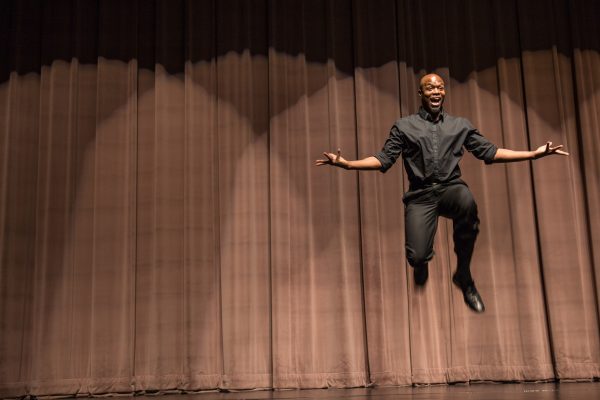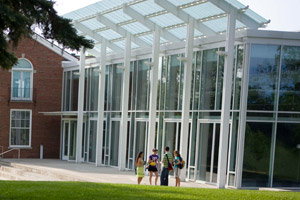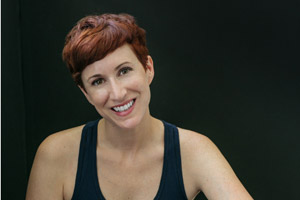Theatre department sets stage for a new era
Armstrong Hall is crackling with energy this fall as two members join the Department of Theatre and Dance faculty. They bring a brand new dance program, a big-time expansion of musical theatre, and an emphasis on enhancing students’ abilities to compete in the world of professional theatre.

Alvon Reed and Caroline Price join veteran professors Janeve West and Scott Olinger in an invigorated department, building on its long legacy of theatre training within a liberal arts setting.
“We are very excited to start a new era in the department,” says Scott Olinger, professor of theatre and chair of the department. “It’s the culmination of years of planning.”
Price will lead the acting program and Reed will head up the renewed dance program. Both bring extensive performance credentials, as well as academic experience.
Resetting the stage
“We’ve taken advantage of departures and retirements to reset the stage, so to speak,” says Associate Professor Janeve West. “With Jim VanValen moving on and the retirement of longtime adjuncts Ron Clark and Jody Hovland, we had the rare opportunity to hire two people who really complement the existing strengths of the department.”

The theatre and dance department offers courses in four areas: acting, directing, technical (for example, lighting, costumes, and set design), and now, dance. Price heads up the acting program and Reed oversees dance, while Olinger directs the technical components and West leads the directing and literature aspects of the department.
Reed and Price come to a department that has outstanding facilities. Kimmel Theatre, the department’s largest performance space, boasts a 265-seat auditorium and the most current technology in theatre production. When it was added to Armstrong Hall in 2003, the department also gained an intimate black-box performance space—the Plumb-Fleming Studio Theatre, along with a spacious scene shop, modern classrooms, and renovated office space. Together, the faculty and the superb facilities provide a strong foundation for the department’s planned growth.
More musicals
With its new vision the department plans to present more musicals on a grander scale.
“There’s always been keen interest in musical productions, but we didn’t have a dance program to support big musicals,” Olinger says.
Musicals are a major gateway into theatre for many students. The department began polling students several years ago and confirmed a strong interest in musical theatre. To support that interest, the department started bringing in guest faculty like choreographer-dancer Amy Barr, whose classes filled.

Cornell did due diligence by engaging a higher education consulting firm to ascertain the viability of expanding the dance offerings. The firm determined there was, indeed, demand among potential students for the move.
“Prospective students wanted dance and many current students need it for their careers,” West says. “I’ve sat through hundreds of auditions of high school students seeking scholarships for college. We at Cornell have missed out recruiting many of them because of the lack of a robust dance program. We think there will be interest from many potential students.”
One thing won’t change, which is the department’s commitment to serving both the serious theatre student preparing for the profession or graduate education, and the traditional liberal arts student committed to exploring the range of human knowledge and activity.
“Every Cornell student, regardless of major, can be exposed to theatre and dance,” West says. “Our program is very liberal-arts-based. The well-being of and holistic experience for students aligns with Cornell’s vision, a vision everyone in the department shares.”

The evolution of the department is not yet complete, according to Olinger, who says they aspire to offer a bachelor of fine arts in musical theatre. A new degree will require close collaboration between the music and theatre departments, as well as a series of administrative approvals required to launch a new degree program.
“We’ve had a lot of support at every level of the college’s administration,” he says. “It’s an incredibly exciting time to be part of this vibrant and growing department. There’s wonderful energy here as we embark on these new adventures.”
Web extra: Meet the two new Department of Theatre and Dance faculty.


